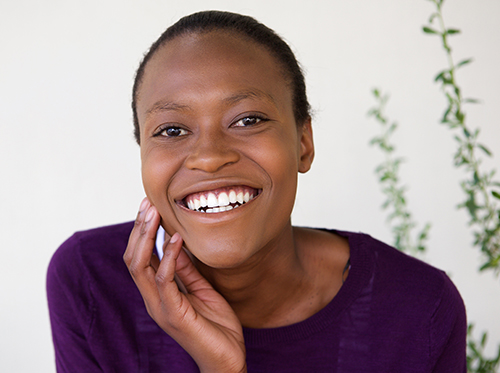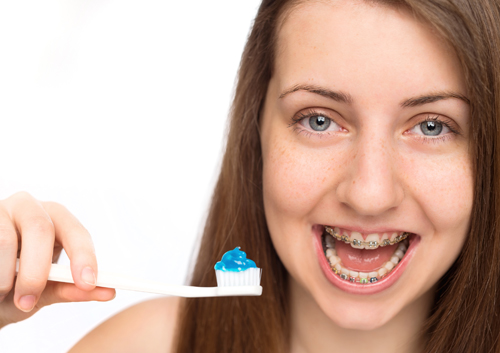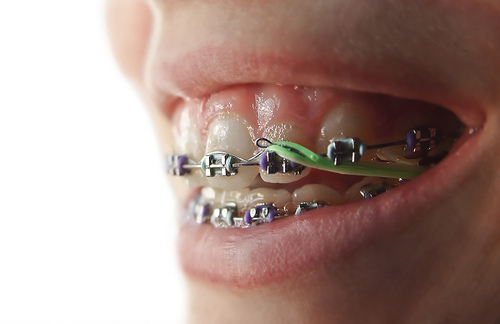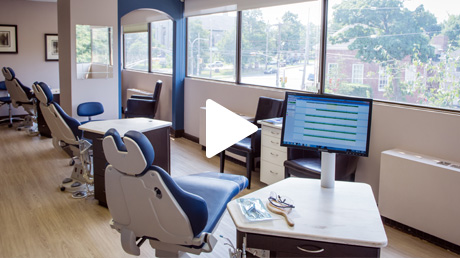December 6th, 2017

These days it's becoming more and more common to see adults at our Halifax office getting their teeth straightened with Invisalign clear aligners — that is, if you can see them! Treatment with Invisalign is effective and aesthetically pleasing for all ages, but adults have certainly taken to them.
For some it may be to overcome the stigma that "braces are just for kids," but for others it may be the displeasing appearance and discomfort of traditional braces. According to the American Association of Orthodontics, from 1994 to 2010 the number of adults 18 and older getting braces increased by 58 percent, from 680,000 to 1.1 million annually. Many of these adults opt for Invisalign because of how discreet they are and since they don't need to avoid any foods or make dietary changes like you do with traditional braces.
The benefits of getting your teeth into proper alignment are many, and so are the advantages of Invisalign. By following your individual course of Invisalign treatment, you can expect to enjoy the following benefits over traditional braces:
- The total treatment time is more precise with Invisalign since your treatment is modeled by a computer, as compared to traditional braces where it is really just an estimate.
- You'll need to make fewer trips to our Halifax office since you can change your trays on your own every few weeks or as prescribed.
- There's less risk to the health of your tooth enamel since there is no need to place brackets on your teeth.
- Invisalign aligners are clear and practically invisible, so most people won't even know you're wearing them!
If you're interested in Invisalign treatment, please let Dr. Paul Bourque, Dr. Kathy Russell, and Dr. Andy Emanuele know. We'd be happy to help you on your journey to a straighter, healthier smile!
November 29th, 2017

Your teeth are precious. Once your permanent teeth come in, they need to last you a lifetime. Extensive tooth decay can lead to dental caries and the need for fillings, crowns, bridges, and dentures.
While these fixes can go a long way toward maintaining your quality of life, they cannot compare to your natural teeth. Getting braces is no excuse to let up on your thorough oral health routine: You need to take good care of your teeth before, during, and after braces to benefit completely from the gains you get from newly straightened teeth.
Why You Should Maintain Good Oral Health for Life
Begin a complete oral health regimen as early as possible in life, and maintain this routine throughout your life. Keeping your (or your child’s baby) teeth clean establishes a routine. It preserves healthy baby teeth whose function is to save space for the permanent teeth when they are ready to come in. Care of your permanent teeth helps preserve the enamel and prevent decay.
Take Special Care with Braces
It is important to pay attention to oral health when you have braces. If you do not take special care of your teeth during the months or years that you have braces, you risk irreversible damage to your teeth. Care is more difficult with braces because food can easily get stuck. In addition to brushing twice daily and flossing each day, Dr. Paul Bourque, Dr. Kathy Russell, and Dr. Andy Emanuele and our staff suggest avoiding sticky foods.
November 22nd, 2017

A clean mouth is a happy mouth. And when Dr. Paul Bourque, Dr. Kathy Russell, and Dr. Andy Emanuele and our staff see you have a clean mouth, we are happy too. Of course, all of this should make you happy because you’re the one preventing sneaky little food bits from getting trapped under the wires of your braces.
Still, you need to be thorough with your brushing. When you have braces, you’re playing a game of hide-and-go-seek with everything you eat. Here are five tips to keep your mouth (and us) happy.
- How is brushing with braces like geometry? It’s all about the angles. Brush the tops of your teeth and braces with your brush angled down. Brush the bottom of your teeth with the brush angled up. Pointy brushes, aka interproximal brushes, are good for reaching the tiny spots around braces.
- Brush after every meal. If those sneaky little food bits hide in your mouth for very long, they’ll turn into plaque. And plaque is a sign of a very unhappy mouth.
- Brush one tooth at a time for at least ten seconds, and pay close attention to the spots where your braces touch your teeth.
- Fluoride is your new BFF. Make sure your toothpaste and mouthwash contain this cavity-fighting ingredient.
- Braces are no excuse not to floss. In fact, saying you can’t floss because you have braces is like saying the dog ate your homework. Dr. Paul Bourque, Dr. Kathy Russell, and Dr. Andy Emanuele and our staff, like your geometry teacher, aren’t going to buy it. Be sure to floss after every meal.
November 15th, 2017

Most of our patients at Metro Orthodontic Specialists will need to wear rubber bands at some point during their orthodontic treatment. The main reason our patients are instructed to wear rubber bands is to correct their bite. If your teeth do not fit together properly, Dr. Paul Bourque, Dr. Kathy Russell, and Dr. Andy Emanuele will recommend that rubber bands be used. Dr. Paul Bourque, Dr. Kathy Russell, and Dr. Andy Emanuele may also recommend using rubber bands to close or open spaces.
Rubber bands are a critical part of your treatment, and wearing them as Dr. Paul Bourque, Dr. Kathy Russell, and Dr. Andy Emanuele and our team recommend will help move your teeth into the desired position. Dr. Paul Bourque, Dr. Kathy Russell, and Dr. Andy Emanuele may ask you to wear your rubber bands full time, meaning that they should only be taken out when you brush and floss your teeth three times a day. Other times, you may be asked to only wear them part-time, like only during the day or only during sleep.
If you still have any questions about orthodontic rubber bands, we invite you to give us a call or ask us during your next adjustment appointment. Remember, wearing rubber bands as prescribed by Dr. Paul Bourque, Dr. Kathy Russell, and Dr. Andy Emanuele is an important step during your treatment, and can reduce the time you have your braces. If you lose your rubber bands or run out, stop by our Halifax office and pick up more!













